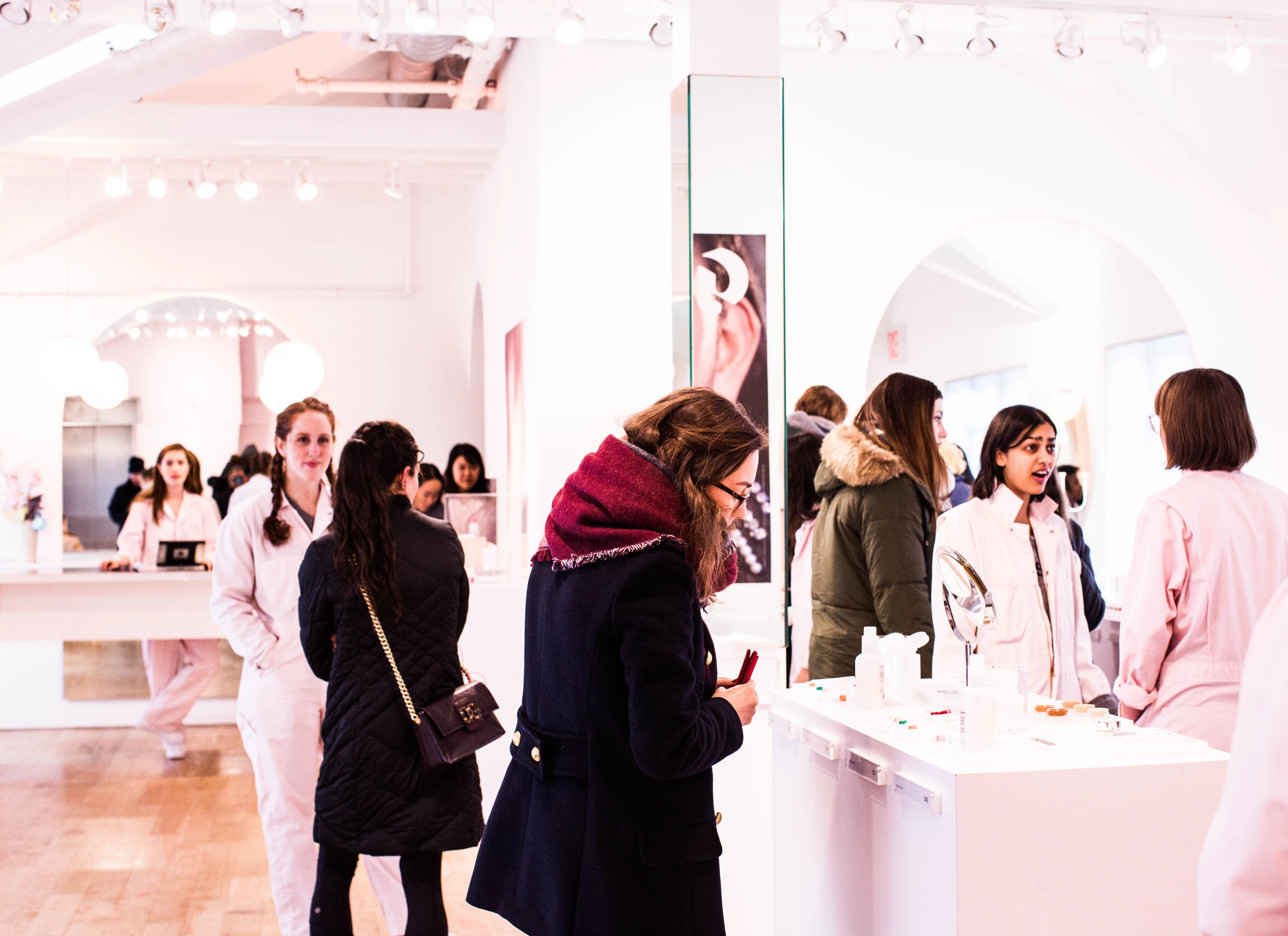
Partner Article
Post-Covid UK beauty customers still prefer touch-and-try to AR
- Half (50%) of UK consumers say the chance to test in-store is important to purchase decisions
- Just two in ten (21%) say that touchless tech like AR plays a significant role in what they buy
- 25% of Baby Boomers would share data with retailers, but say the current pay-off isn’t worth it
- 60% of shoppers are actively looking for clean and natural beauty products
New research out today shows that testing in-store is still instrumental when buying beauty and personal care products.
Half (50%) of UK consumers cite testing beauty products in-store as a key factor before parting with their cash. This number rises to almost two-thirds (63%) of shoppers aged 25-34, and 58% aged 35-44.
Despite appearing antiquated to some, in-store testing is currently preferred to touchless technologies like augmented reality (AR), where just two in ten (21%) say it’s important. This number rises to a quarter (26%) for 25-34 year olds.
The study, conducted by retail innovation agency Outform, covers a representative spread of more than 2,000 global respondents across the UK, USA and Germany. It explores how consumer habits are continuing to shift when shopping for beauty and personal care products in a post-lockdown world.
Samples are also key purchase levers for female consumers at 65%, with make-up sitting above hair and skincare as the most important sample category. A third (34%) of all consumers also say that sampling matters more to them now than it did before the pandemic, and 38% of men now value sampling more than women.
The research found that technology still plays a significant role in purchase decisions, despite the preference for traditional, tactile browsing and purchase methods. A third (33%) of Gen-Zs (aged 18-24) say that online make-up tutorials are important and 36% use digital in-store displays.
But when it comes to extracting data from these technologies for a unified customer view online and in-store, there’s still a way to go.
A quarter (25%) of Baby Boomers, aged 55-64, are open to the idea of sharing data, but say current payoffs like bespoke loyalty benefits aren’t worth it. However, Outform’s research also found that in the UK, Millennials aged 25-34 are the group that value personalisation from health and beauty brands the most, with 43% saying it matters.
Meanwhile, subscriptions are a growing force for Gen-Xers (aged 35-44): a quarter (26%) say availability through repeat deliveries are important to deciding whether or not to buy, with men placing more emphasis on this than women.
Simon Hathaway, MD EMEA at Outform, says: “Beauty brands were leading innovators during the pandemic. With sensory experiences effectively culled during lockdowns, they quickly pivoted to the next best options, from one-to-one virtual consultations to AR technologies. It was invaluable while shops were closed, but has also been a lifeline for those who were - and still are - more cautious of touch.
“But as the research shows, there is an appetite to reinstate the try-before-you-buy mindset. The next step for brands and retailers who dare to innovate will be turning this into a data touchpoint, so that they have a thorough understanding of customer expectations and habits, from how they shop all the way to their unique beauty regimes.”
Consumer motivations are shifting, too. Clean and natural have become keywords for six in ten (60%) UK consumers across every generation, and 59% of 35-44-year-olds now want green labels. Men are also more likely to be influenced by this than women.
Inclusion is also high up the agenda. 52% of Gen-Zs want products that are designed with all skin colours in mind, and 43% of Millennials want products that are gender-neutral. However, this declines with age, as both of these factors matter least to Baby Boomers (30% and 21% respectively).
Simon Hathaway adds: “Beauty is becoming smarter, but it also needs to become more accessible for increasingly diverse audiences. Several brands have already taken the reins in making products more sustainable and wearable for all skin colours, meaning it’s becoming an expected standard by all across the industry.
“And when it comes to sustainability, it’s not only recycled packaging and ethically sourced ingredients that matter. It should go as far as store layouts that choose digital screens over plastic signs to make the entire life cycle of a beauty product greener.”
The research was conducted by Outform, for the agency’s The Changing Face of Health & Beauty report. A total of 2,000 health and beauty consumers were surveyed across the UK, USA and Germany in September 2021.
This was posted in Bdaily's Members' News section by Alex Sampson .








 £100,000 milestone drives forward STEM work
£100,000 milestone drives forward STEM work
 Restoring confidence for the economic road ahead
Restoring confidence for the economic road ahead
 Ready to scale? Buy-and-build offers opportunity
Ready to scale? Buy-and-build offers opportunity
 When will our regional economy grow?
When will our regional economy grow?
 Creating a thriving North East construction sector
Creating a thriving North East construction sector
 Why investors are still backing the North East
Why investors are still backing the North East
 Time to stop risking Britain’s family businesses
Time to stop risking Britain’s family businesses
 A year of growth, collaboration and impact
A year of growth, collaboration and impact
 2000 reasons for North East business positivity
2000 reasons for North East business positivity
 How to make your growth strategy deliver in 2026
How to make your growth strategy deliver in 2026
 Powering a new wave of regional screen indies
Powering a new wave of regional screen indies
 A new year and a new outlook for property scene
A new year and a new outlook for property scene